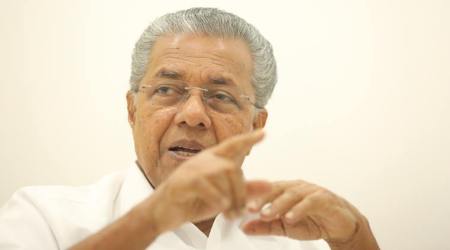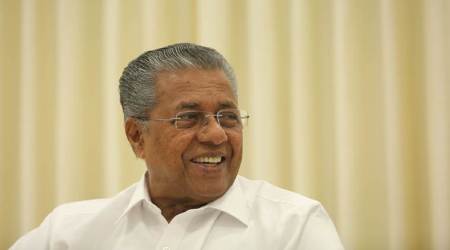 Asian Championship gold medallist P U Chitra
Asian Championship gold medallist P U Chitra
ON THOSE days when P U Chitra’s parents, both daily-wage labourers, failed to find any work, the family of six would make do with a few plates of leftovers. There were nights when Chitra went to sleep on an empty stomach. But nothing stopped the prodigiously talented athlete from waking up at 5.45 am the next day for the physical education class at a government school at Mundur in Kerala’s Palakkad district.
It’s a routine she stuck to for years, the unrelenting perseverance making her an Asian Championship gold medallist earlier this month. But, as her father Unnikrishnan says, life continues to be a struggle for the 22-year-old, who despite the phenomenal win in the 1500m at Bhubaneswar, wasn’t included in India’s squad for the London World Championship.
“This morning, when I left for work, I was hoping that we would hear some good news in the evening. We are all heartbroken, so is Chitra. If only those who dropped her from the team had as difficult a life as ours, they would have realised how big a setback this is for my daughter and for us,” says Unnikrishnan.
He isn’t alone. Kerala Chief Minister Pinarayi Vijayan has joined the state-wide chorus to put Chitra on the flight to London. The matter is now in court but it’s unlikely that the outrage would get the national body to change its contentious decision.
On Wednesday evening, Athletics Federation of India president Adille Sumariwala issued an open letter justifying Chitra’s exclusion. He pointed out that Chitra’s timing at the Asian Championships was slower than the Under-20 national record and had further dipped at the Inter-state meet held a week later in Guntur.
 Chitra’s family in Palakkad: ‘we are all heartbroken’
Chitra’s family in Palakkad: ‘we are all heartbroken’
Unnikrishnan doesn’t understand the complex qualification criteria nor is he aware of the support his daughter is receiving on social media. But then, he and his wife Vasantha Kumari were working at a construction site for most of Wednesday. “I was paid Rs 500 today and my wife Rs 350. We have to look for work every day to make ends meet. We take up whatever jobs we get. At times, we are employed by farmers who own land or find work at different construction sites,” says Unnikrishnan.
Chitra’s coach Sijin N S says she always dreamed of representing the country abroad. “She opted for athletics training in school. I knew that she was not from a well-to-do family but despite the difficulties, she was always committed to training. She had the kind of drive I had not seen in other athletes her age,” says Sijin.
Chitra was a day-boarder at the school and received Rs 25 per day from the Kerala Sports Council and Rs 600 a month from the Sports Authority of India under a scheme for young athletes. “The amount helped in meeting her basic training needs. Over the years, as she started winning medals at state and national-level meets, well-wishers and the government supported her. But people must not forget how difficult it is for someone like her, whose parents are daily-wage labourers, to represent India in athletics. The AFI has done irreparable damage by not selecting her for the World Championships even though she deserves to go as she won gold at the Asian Championships,” says Sijin.
The Kerala government had declared a prize money of Rs 10 lakh for gold-medal winners at the Asian Athletics Championships. The amount has yet to reach Unnikrishnan but he insists this isn’t about money. “Our biggest joy is seeing our daughter represent the country and win medals. Sometimes I wonder if we were rich and had clout, would Chitra have been treated this way,” he says.

